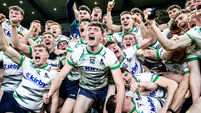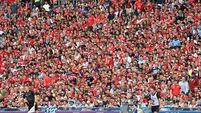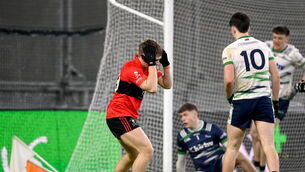The man who went up a hill and climbed a mountain
One hour's walk brings the moment when he looks down on Coomasatharn Lake and wonders how he climbed so high, so fast.
"Becoming Kerry manager was totally against the odds for me. I come from a small, rural club, never played for Kerry. Never even got close to it."













